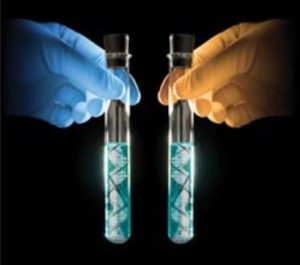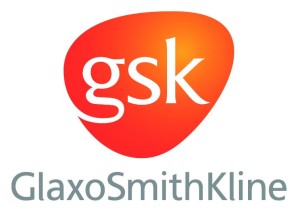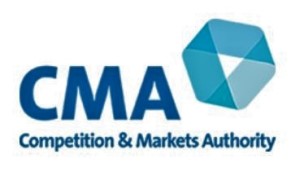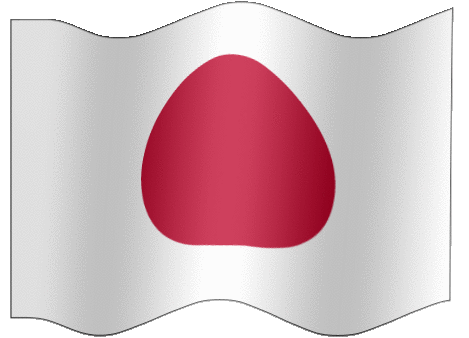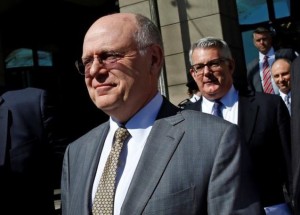- Biosimilars gain momentum — and pharma leaders are noticing (biopharmadive.com)
Biosimilar development in the U.S. appears to be gathering momentum, following the approval of Celltrion and Pfizer’s Remicade copy by the Food and Drug Administration in early April...The drug, marketed as Inflectra, is only the second biosimilar to clear regulatory review in the U.S., after Sandoz’s Zarxio in March 2015. But there are a number of other biosims entering late-stage development or with applications filed at the FDA... And with several blockbuster biologics nearing patent expiry, competition is likely to increase...Biosimilars promise to increase competition and lower prices across a number of other blockbuster biologics. They also represent new avenues of growth for companies seeking to enter previously protected markets...There is still a long way to go before biosimilars have anywhere near the market impact of generic drugs in the U.S...Biosimilars are still very much in early stages domestically...biosimilars look set to present a number of important opportunities and challenges to the U.S. biopharma landscape...
- Pfizer Vs. Obama: The Treasury Tries To Stop Pharma’s Tax Dodge (forbes.com)Allergan down over 20% after Treasury inversion rule (cnbc.com)Don’t Try to Leave (blogs.sciencemag.org)Would Pfizer And AstraZeneca Both Revisit That $100 Billion Deal? (forbes.com)
Most experts in corporate taxes thought there was little President Barack Obama could do to force Pfizer, the largest drug company in the U.S., from moving its corporate address to Dublin, Ireland, in order to escape paying American taxes...Yesterday evening, Jack Lew, Obama’s secretary of the treasury, called Pfizer’s bluff, instituting new rules to make the move as difficult as possible. The punch hit, and investors are reeling...Now the move could intensify an election-year battle over what it means for companies to be American, and the fairness of the U.S. corporate tax code...Lew is peeling the Allergan onion. Until last year, the company called Allergan...was based–and paid taxes–in Irvine, Calif. Then it was bought by Actavis , a Dublin, Ireland-based drug maker...But wait! Actavis itself was built by a rapid succession of deals, starting when Watson Pharmaceuticals...bought Actavis...partly in order to move its tax domicile to Dublin, Ireland. Now, for the purposes of laws related to the Pfizer deal, the Treasury says many of those other deals don’t count...the Treasury’s new rules reek of overreach. Really? We’re going to redefine what counts as a share of a company as a regulatory action, so that we can make the law mean what we want it to?...Pfizer is going to have to be just as clever as the Treasury is here, and then some...expect a fight: Pfizer versus the Obama administration.
- The Declining Revenues of GlaxoSmithKline’s Pharmaceutical Segment (finance.yahoo.com)
GlaxoSmithKline’s Pharmaceutical segment has declined substantially in 2015 due to the divestment of its oncology business to Novartis...The...segment reported revenues of $14.17 billion in 2015, compared to about $15.5 billion in 2014...revenues declined by 1% following lower sales of Seretide and Advair, partially offset by increased sales of HIV products Triumeq and Tivicay, and new pharmaceutical products...the...segment’s contribution to total revenues declined from 67.3% in 2014 to ~59.2%...GlaxoSmithKline’s Pharmaceuticals segment is classified into the following two franchises:
- HIV products are marketed under ViiV healthcare, a company with GSK as a major shareholder, while Pfizer and Shionogi are other shareholders. The company completed the acquisition of Bristol-Myers Squibb’s R&D HIV assets on February 22...HIV products reported growth of 54%...about $3.2 billion...partially offset by declining sales of Epzicom/Kivexa.
- Global pharmaceuticals - respiratory, cardiovascular, metabolic and urology, immuno-inflammation, and established products...key numbers:
- ...the respiratory franchise, the drugs Seretide and Advair are losing their market share to the generic competition...revenue decline of 7%
- ...the cardiovascular, metabolic, and urology franchise, the drugs Duodart and Jalyn have shown strong performances, while Avodart...is exposed to generic competition since October 2015...sales declined by 9%
- ...the immuno-inflammation franchise, Benlysta is driving growth...sales improved by ~24% while the franchise sales improved by 16%
- ...the established products franchise are losing their market share to generic competition...a revenue fall of 15%...due to lower sales across global markets.
- Other pharmaceuticals franchise include few key products...Augmentin, Relenza, Dermatology products, and rare disease products...revenues...declined by 4%...lower sales for Augmentin, dermatology, and rare disease products, partially offset by the strong performance of Relenza
- U.K. competition watchdog targets pharma for ‘substantial fines’ (fiercepharma.com)
Look out, pharma: Britain's competition watchdog is coming for you....The U.K.'s Competition and Markets Authority is planning to levy "substantial fines" this year, marking a "big step up in the scale and impact" of its enforcement activity, Alex Chisholm, head of the agency, told the Financial Times. And one of those fines will likely be directed at a pharma company...The CMA has been probing drugmakers including GlaxoSmithKline and Pfizer for alleged wrongdoing. "In high-value markets with big players, they should face big fines,"...For Pfizer, though, a resolution could still be a ways off. In August, the CMA accused the drugmaker and partner Flynn Pharma of running afoul of U.K. and European laws by jacking up costs for their epilepsy drug...The pair charged "excessive and unfair prices"...the CMA said at the time, raising costs by as much as 2,600%. Regulators plan to hand down a decision in the case in about three months..."While businesses are generally free to set prices as they see fit, those that hold a dominant position have a special responsibility to ensure that their conduct does not impair genuine competition and that their prices are not excessive and unfair,"...
- Drug price cuts in Japan sink in though details sparse (fiercepharmaasia.com)
Domestic and foreign drugmakers in Japan may cut spending on R&D as the scope of mandated price cuts for reimbursed products kicks in--suggesting that future investments are at stake...Pfizer and Eli Lilly have raised the issue as a combination of price reviews for pharmaceuticals hits in one of the top 5 reimbursement markets globally...Without stability and predictability in drug prices, investments will go elsewhere...cost cuts raise the risk of less investment in Japan...Reimbursement in Japan was a double-whammy this fiscal year that started April 1 for many drug firms, with price cuts for widely prescribed drugs by Japan's Central Social Insurance Medical Council, known as Chuikyo, reaching as much as 50 percent...Under the formula, drugs with annual Japan sales of more than ¥150 billion ($1.8 billion) and that see sharp sales gains can face cuts...On top of that, the every-other-year price-cut exercise by the government at the same time aims for savings of $1.5 billion. The exact revenue losses for companies won't likely be known until second-quarter results are released--although several companies flagged the issue in fourth-quarter earnings calls... Japan's Ministry of Finance has suggested the price cuts need to be every year as healthcare costs balloon along with a rapidly aging society that requires increasingly expensive care...
- Brand matters: Interbrand’s best in pharma ranks Pfizer, Roche and Merck at top (fiercepharmamarketing.com)
Global brand consultant Interbrand, author of the annual Best Global Brands list, has turned its attention to pharma. InterbrandHealth looked specifically at the pharma category and sifted through 25 companies to get the "Best Pharma Brands," a baseline top 10 in the industry.
- Pfizer - ranked highest at almost $20 billion ($19.99 billion) in brand value
- Roche Group - at $15.47 billion
- Merck & Co. - at $13.88 billion
- Janssen at $13.87 billion
- Novartis at $13.5 billion
- Amgen at $13.46 billion
- Gilead Sciences at $13.36 billion
- Novo Nordisk at $10.21 billion
- AstraZeneca at $8.12 billion
- GlaxoSmithKline at $6.78 billion
Interbrand looked at three factors in determining the dollar figure for the brands: financial analysis, brand strength and role of brand. The third factor measures brand influence and how likely customers are to recommend it--in this case, how likely are doctors and healthcare providers to recommend or prescribe the brand's drugs.
- Analysis questions benefit of female libido drug (news.yahoo.com)US Food and Drug Administration Approval of FlibanserinEven the Score Does Not Add Up (archinte.jamanetwork.com)Efficacy and Safety of Flibanserin for the Treatment of Hypoactive Sexual Desire Disorder in Women (archinte.jamanetwork.com)
Women may experience small benefits with a drug approved last year in the U.S. to treat low sexual desire in women, but at a high risk of experiencing unpleasant side effects...The findings "suggest that the benefits of flibanserin are marginal," given that one in three women experience side effects, of which the most common ones include dizziness, sleepiness, nausea, and tiredness...Flibanserin, marketed by Valeant as Addyi, was approved by....to treat premenopausal women with hypoactive sexual desire disorder...the drug comes with a...black-box warning - the FDA's strongest - that women may suffer severe low blood pressure or faint if they take the drug with alcohol, certain medications or have liver problems...Jaspers (Dr. Loes Jaspers, of Erasmus University Medical Center in Rotterdam, the Netherlands) said their findings suggest the FDA should reconsider its approval of flibanserin but cautioned that the agency may have taken other factors into account to make its decision...
- Abandoned Pfizer deal leaves all sides tainted (blogs.reuters.com)Investors stick with Pfizer CEO after Allergan deal scrapped (reuters.com)Treasury Is Wrong About Our Merger and Growth (wsj.com)
Pfizer’s abandoned deal leaves all sides tainted. The U.S. Treasury looks bad for changing the rules on Monday to kill the $160 billion merger with Allergan. Lawmakers’ inaction encouraged such tax-driven transactions. But Pfizer and Chief Executive Ian Read bear the most responsibility for wasting time and resources pushing an overpriced, risky deal...Monday’s new standards directly target Pfizer’s deal, as they disregard U.S. assets acquired in the past three years. That eliminates Allergan and its low Irish tax rate as a target. It’s unclear if the Treasury Department has overstepped its authority. But purposefully and rapidly mutating laws, especially when applied retroactively, are bad for business and legal authority...Lawmakers emerge covered in tar, too. They could have stopped inversions cold by adopting a territorial tax system. This would have stopped U.S. companies having to pay an extra levy to Uncle Sam on cash earned overseas if local taxes are lower than the U.S. statutory rate. Their fecklessness encouraged Pfizer and other firms to pursue complicated deals where the main payoff is tax avoidance...
- Drug makers paid fewer fines for bad behavior in recent years (statnews.com)
After a decade in which drug makers regularly paid huge fines for various fraudulent practices, there was a noticeable drop over the past two years, according to a new analysis by Public Citizen...Pharmaceutical companies paid approximately $2.8 billion to settle federal and state civil and criminal charges in 2014 and 2015, compared with $9.9 billion during 2012 and 2013. The most recent payments also amounted to the lowest two-year total since 2004 and 2005...Among the worst offenders in recent years were Johnson & Johnson, Pfizer, Novartis, and GlaxoSmithKline, although the report noted that nearly every large drug maker has paid fines to resolve some kind of infraction over the past two decades...A spokesman for the Pharmaceutical Research and Manufacturers of America...We are disappointed at the report’s misleading conclusions...Among its many methodological flaws, the report aggregates all settlements involving the pharmaceutical industry, with little regard as to whether the companies actually broke the law. Civil settlements rarely resolve the question of guilt. Yet the report glosses over its own finding that 88 percent of the settlements reported were civil, not criminal...
- Bayer’s Aleve and GSK’s Flonase top list of OTC TV ad spenders for 2015 (fiercepharmamarketing.com)
In a head-to-head prescription versus over-the-counter drug battle, prescription wins. At least when it comes to advertising...TV ad spending for the top 10 prescription drugs tallied $876.3 million, while over-the-counter spending among the top 10 brands totaled just $514 million for TV ads in 2015…Bayer's pain reliever Aleve topped the OTC list with almost $75 million in TV spending. Aleve also had the highest number of different TV spots as well with 23 creative executions running in 2015. GlaxoSmithKline's Flonase at No. 2 was no surprise after the drug went off patent and GSK went on an aggressive push to keep the brand thriving through the spring allergy season...The top 10 OTC list by estimated TV media spending by iSpot.tv for 2015 follows:
- Aleve (Bayer): $74.5 million
- Flonase (GlaxoSmithKline): $73.1 million
- Claritin (Merck): $58.4 million
- Advil (Pfizer): $58.3 million
- Nasacort (Sanofi): $50.3 million
- Alka-Seltzer (Bayer): $49 million
- Allegra (Sanofi): $43.8 million
- Tylenol (J&J): $37 million
- Nexium (Pfizer): $36.3 million
- Zyrtec (J&J): $33.1 million

